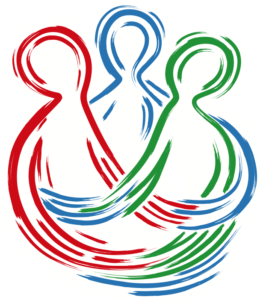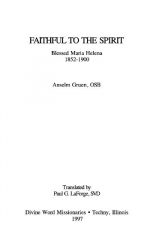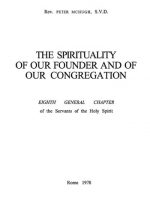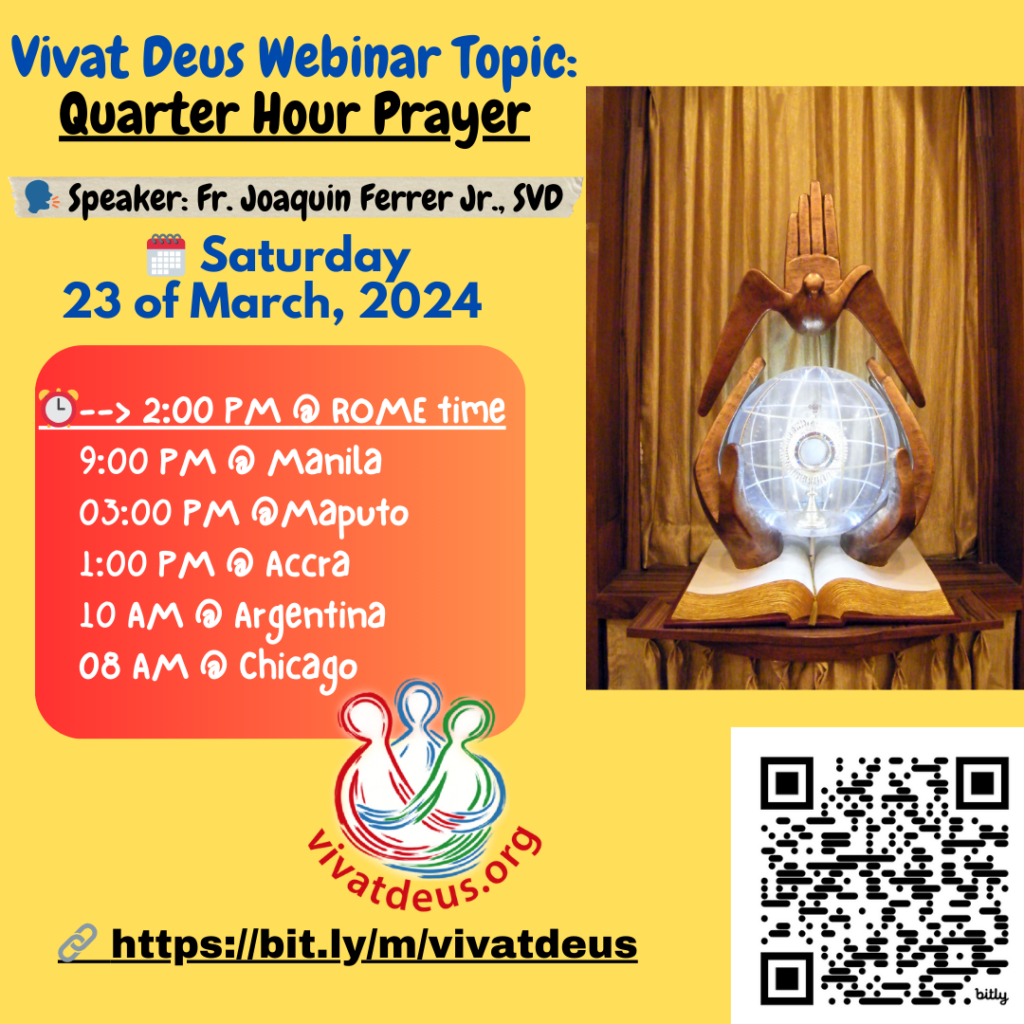Towards a spirituality with an anthropological perspective
-
From cultural anthropology to integral anthropology
At the beginning of the debate, the group coordinator reminded us that anthropology, like all other sciences, is subject to a historical process of intellectual maturity. Since our Congregation made anthropology (ethnology) an important support for missionary action until very recent decades, the main focus of anthropology focused almost exclusively on the cultural manifestations of the human being: their way of thinking and speaking, their religious ceremonies (or pagan), their traditional codes of conduct, art and customs in general, in short, the manifestations of the “mind”. It is not difficult to trace the origin of this anthropology. Greek philosophy placed great emphasis on the rationality of the human being, with a clear disregard for its bodily, physical dimension, considered imperfect and mortal. “The flesh is worth nothing”, Saint John will tell us in his Gospel (6,63). Based on this philosophy, and fueled by the strong Jesuit hope in the (next) Kingdom of God (far superior to the kingdoms of earth), the early Christians, in fact, expected an “other world” free from its imperfections. , as the Apostolic Letters and very old documents like the Shepherd of Hermas. A strongly dualistic Christian anthropology emerges in which the body and the spirit struggle with each other. Saint Thomas Aquinas († 1274) will say that every human being possesses (“ab extrinsic immissa”) an immortal soul. Only this must be saved, since the body “is of no use”. We must not lose sight of the fact that the founder was also guided by this anthropological vision. A deep knowledge of the pagan peoples was necessary to convert them more easily and thus “take all souls to heaven.”
Someone in the group observed: “Our great current challenge is to confront those who use all of nature for themselves and their particular interests. In fact, in our day, anthropology faces challenges that the dualistic tradition does not solve. Its rationality has even offered a reinforcement to this dualistic tendency (especially through Renée Descartes’s “cogito, ergo sum”), the current consensus, both in philosophy and in theology and other sciences, goes in the opposite direction: that of unity between mind and body. An independent or disconnected soul from the body is no longer conceivable. If Pope Benedict XVI continues to insist on the “ontological consistency” of the human soul (Caritas in Veritate 76), or speaks of the real capacity and the importantance of human consciousness to open itself to the “transcendental”, and therefore to the scientifically unprovable, or it will lose credibility. The human soul was not infused into the human being in the Garden of Eden, as suggests Gen 2: 7, but slowly evolved with and from “Life” itself. For those who have faith, without a doubt is the most beautiful fruit of divine creation. However, human consciousness itself is as human as any other facet o In his beautiful work Order out of Chaos (with Isabelle Stengers, New York: Bantam Books, 1984), the great Nobel Prize winner in Chemistry, Ilya Prigogine († 2003), pointed out a reality not clearly perceived until then: against the second law of thermodynamics that states that all energy present in nature tends to be, by the law of entropy, to its thermal equilibrium, life does the opposite. It behaves like a “dissipative structure”, or open one. Receiving a constant flow of energy from the environment, life is permanently renewed and, surpassing itself, in an uninterrupted process of increasing complexity, it gave rise, after approximately 3,700 million years, to a living being that became aware of itself. himself … with the ability to deteriorate life itself, or to elevate it to a new level. Without a doubt, a total responsibility. Pope Francis had the courage to say, for the first time, “that we are all earth” (LS 2), and that we are umbilically interconnected with each other and inserted in the great web of life that sustains us. “A very different vision from that of our parents and grandparents who, in front of the mountain, only thought of cutting it down,” observed a member of the group. It is no longer possible, therefore, to do anthropology giving primacy only to the cultural or mental aspects of the human being. What is needed today is an “integral anthropology”, which takes due account not only of the subjective structure of the human being, but also its biochemical, social and environmental structure. As a great example in defense of this multidimensionality of modern anthropology we can cite the famous French anthropologist Edgar Morin, easily observable, for example, in his work Terra-Pátria (with Anne Brigitte Kern, Porto Alegre: Ed. Sulina, 1995), where qualifies compartmentalized thinking as “cognitive imbecility” (p. 152).f the human being.
-
The “natural law” seen from a new angle
In the midst of the lively debate, a member of the group recalled that “there can be no opposition between the perspectives of people and the perspectives of nature, since, as the Pope says, everything is interconnected.” We can also, he said, put everything in the perspective of “human happiness.” If the human being is never an isolated island, but is always part of a great collective and environmental framework, this means that something must be wrong when this human being does not feel happy. From the perspective of human rights, the abuse of the right to property was recalled, and from the perspective of the integrity of creation, the abuse of the right to life. Another member of the group then recalled the old “natural law” question. St. Thomas Aquinas († 1274), following Wisdom 11:23, argued that God “is not bothered by anything he has done” and “if he had hated something, he would not have done it”. In all creatures, he said, there is a “natural law”, made by God, that must be respected. This natural law (this “grammar”, said Benedict XVI) is present in the entire cosmos. Happiness is unattainable outside of this law. Few theological concepts have been so criticized by Modernity as this natural law of Saint Thomas. The Church, considering itself for centuries the only possessor of all truths, has interpreted it, in many cases at will. By not accepting the contribution of the sciences, the Church has been trapped in the traditional dualistic anthropology. Only the Second Vatican Council, with Gaudium et Sp. II, with Gaudium et Spes 36, broke the barrier, accepting all “earthly realities”, including science in general.
It cannot be forgotten that the Catholic Church, throughout Modernity, opposed the achievement of almost all human rights. When the French Revolution (1789) proclaimed them for the first time, the French episcopate called them a “heap of stupid propositions”, and the Brief “Quod Aliquantum” (1791), of Pope Pius VI, solemnly condemned them. It is interesting to note that the proclamation of Human Rights itself culminated a long gestation process started already in the Renaissance by the defenders of “natural rights”, such as the Dominican Francisco de la Victoria († 1536), the “father of international (natural) law”, and the great theological and legal thinkers of the famous university of Salamanca, in the 16th century. Nor should we forget the always remembered (and nicknamed) “Dutch miracle”, Hugo Grotius († 1645). This proposal of natural rights was also based on the “Christian humanism” ardently defended by authors such as Thomas More († 1535) and Erasmus of Rotterdam († 1536). There was the seed of the subsequent total separation of Church and State. What defines it is a nthropologically correct it would not be in the first place a certain religious dogma, but the very “nature” of created things. Modern anthropology thus seems destined to take up the previous intuition of Saint Thomas Aquinas and, always distrusting anticipated “religious” positions, to go deeper and deeper into the multidimensional root -biochemical, social and environmental- of the human being, that is to say , in its “natural” root. Anthropos – and “integral” anthropology – find a way forward there.
-
The question of the “universality” of human rights
At one point, a member of the group recalled that only the human being, with his conscience, can deviate from this natural law and violate, for example, the right to peace or mutual respect. In fact, human freedom, with a greater or lesser degree of consciousness, allows to “appropriate” the rights of others. A maxim in the reflection of human rights is that they are “universal”. It doesn’t matter ethnicity, class, color, or religion. In Brazil, the III National Human Rights Program (2009), in guiding axis III, affirms that human rights are “universal, indivisible and interdependent”. The concept of universality is fundamental. The most heated debate at the Second International Conference on Human Rights of the UN (Vienna, 2013) referred precisely to this concept. The world before us hurts these universal rights in every way. If economics can be seen as the “hub” that turns societies, today’s leading liberal economists, such as the Frenchman Thomas Piketty and his professor, Anthony B. Atkinson, demonstrate, through very convincing graphs and tables, that the Economic inequality, since the introduction of neoliberalism in the 1970s / 80s, has grown exorbitantly, resuming the traditional airs of “big house and slave rooms” in many parts of the world (Cf. Thomas Piketty, Capitalism – in the 21st century , Rio de Janeiro: Ed. Intrínseca LTDA, 2014; and Anthony B. Atkinson, Inequality – What can be done? São Paulo: Leya Editora LTDA, 2015). In this context, how comforting that we currently have a Pope who fully takes up – in theory and in practice – the cause of universal human rights! Still recently, closing the III World Meeting of Popular Movements (Rome, 11/05/2016), he recalled his famous phrase “no farmer without land, no worker without work and no family without a home”, and encouraged the leaders not to permit a “formation” (that is, assume the social role, acclaimed by the elites, but not its political-transforming role), much less allow oneself to be corrupted, since “corruption also exists in social organizations.”
However, we cannot fail to take into account that, from the perspective of the rulers, not everything can be fixed overnight. We live in polluted systems and deteriorated contexts (as even in the Church and in Religious Life). Institutional analyzes are of the utmost importance. Precisely because everything is interconnected, in time and space, no one has a magic wand to change things on their own. Human rights are slow to be won. A member of the group, who worked for many years at the most prominent Center for Human Rights and Popular Education in São Paulo (CDHEP / CL), observed that the struggle for human rights in Brazil went through different historical phases. During the military dictatorship, the fight was for civil and political rights; then the struggle for social rights emerged with force; at a later stage, cultural rights (eg “gender” rights) and, finally, environmental rights appeared. If Anthropos and the Congregation, following in the footsteps of its founder, intend to know the human being in depth in order to “save all peoples”, they should make “universal” human rights an important topic for their research and academic proposals. In them, the complex issue of the economy should also have a growing space. The way to heaven passes through the earth.
-
The challenge of “transcendence” for Anthropos and the SVD
In the midst of group discussions, one of the participants, who films popular behavior even in the most remote corners of the country, made the following observation: “A correct anthropology should pay more attention to the ‘meaning’ of people – simple lifestyle – they give to existence and to the things of life, especially to the meaning of what goes beyond what life offers “. It was then recalled the great space that the lecturer Faustino Teixeira opened for the symposium, when he spoke of the important role of spirituality in the lives of different peoples and cultures. “It is up to Anthropos to rescue the sacred in human traditions,” he said. In fact, anthropologists like Edgar Morin and many others speak of these spiritualities as a kind of “anthropological (or universal) constant.” Every human being, individually and collectively, is in search of a “meaning” for his existence, always marked by the limits of his insurmountable contingency and misery. The famous contemporary German philosopher, Hans Jonas, observes that in all creation there is a “horizon of transcendence”: from the physical world to the biochemical world, from the biochemical world to the vegetable, from the vegetable to the animal, and from unconscious life to conscious life (cf .) Teilhard de Chardin († 1955), with the eyes of faith, spoke of a process of amortization or christification (Cf.) Leaving faith aside, Modernity began the 20th century by decreeing, as did Friedrich Nietsche († 1900), “the death of God”, but postmodern thinkers have brought it back. Secularization has not succeeded in eradicating human religiosity. The Lutheran theologian Peter Berger claimed to hear again “the rumor of angels” everywhere (Cf. A Rumor of Angels: Modern Society and the Rediscovery of the Supernatural, Harmondsworth / England: Penguin Book, 1971). Even some fervent militant atheists today fight religion in the name of values and principles that, if we look closely, have a deeply religious content. It has not changed religiosity, but the way of understanding and experiencing it, says the renowned Dutch theologian Erik Borgman (Cf. Metamorfosen – Over Religie in Moderne Cultuur, Ed. Klement / Pelckmans, 2010).
The presence of a musician in the group brought up another aspect of this same question, when observing: “the human being is not only rational, but also intuitive, and this human dimension is revealed not only in direct religious practice, but also in art, theater and, particularly, in music. In fact, in neuroscience there are those who defend that the human being “captures” reality more intuitively than rationally. He makes his decisions based on a generalized feeling and then uses reason to justify or interpret them (see, for example, in Danah Zohar, O Ser Quântico, São Paulo: Nova Cultural, 2000). Mysticism is inherent to the human being. Fausto has opened several perspectives in this regard. For this reason, says the Pope in Laudato Si 216, “it is not possible to commit ourselves to great things only with doctrines, without a mystique that encourages us. Interpreting and valuing the mystique of any people is, therefore, an important objective, both for the Anthropos Institute and for the Church in general.
We could also remember that, for the Ecumenical Association of Third World Theologians (AETMT), the world of the future will be marked by the “post-religious paradime” (cf. Revista Eclesiástica Brasileira, 288/2012). Something totally new and still unpredictable. All the religiosities of the last millennia would be the fruit of a typically agrarian civilization, and this has definitely come to an end. It would then be necessary to aim for something totally new. We clearly see this trend in the magnificent series On the Ways of God. In these five books, organized by the EATWOT theological commission (Luiza Tomita, Marcelo Barros and José Maria Vigil), the authors (including Faustino Teixeira) harmonize the best of the Liberation Theologies with the best of the different “ways of God” opened by the current theology of religious plurality. In any case, anthropologically speaking, the human being will continue to be a mystical being, open to what transcends him (as opposed to the “closed humanism” of traditional modern philosophers), and always in search of overcoming his individual, collective misery environmental. The mission of the Church is to accompany humanity in its tireless search for “salvation”, offering the riches of her own past and learning from the riches of the different cultures with which she faces. All this so that the “full life” dreamed of by Jesus becomes more and more concrete (Jn 10:10). If this is the mission of the Church and the SVD, it should also be the main goal of Anthropos. Faithful to the past, but facing the future with courage.
Juiz de Fora, 10/23/2016







